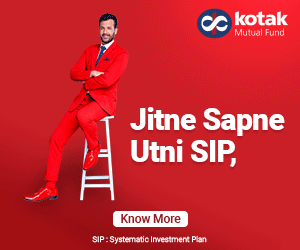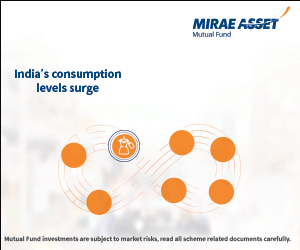How did the different Mutual Fund categories performed in 2014: Part 1

2014 was a terrific year for the equity markets in India. The Sensex rose by nearly 30% during the year on the back of the Lok Sabha election results and expectations of turnaround in the economy. Mutual funds saw record inflows in equity schemes, with over र 50,000 crores, net of redemptions, flowing into equity oriented schemes during the calendar year 2014. In this two part series, we will see how different mutual fund categories in 2014. In the first part we will review the performance of equity oriented fund categories.
Large Cap Funds
Large cap funds gave on average nearly 36% return in 2014 beating the Sensex returns by a wide margin. On a year on year basis, the returns of large cap funds category were sharply higher in 2014. The chart below shows the annual returns of large cap funds from 2012 to 2014.

Small and Midcap Funds
Small and midcap funds gave the highest returns among all mutual fund categories in 2014. Small and midcap funds on an average gave nearly 75% returns in 2014. However, one should not compare the returns of large cap and midcap funds, since midcap funds intrinsically carry more risk than large cap funds. If you look at the returns of the midcap over the last three years, you will notice that midcap funds outperformed large cap funds in bull markets, but their performance was weaker when market was subdued. The chart below shows the annual returns of small and cap funds from 2012 to 2014.

Diversified Funds
Diversified funds invest across market capitalizations and sectors. Their portfolio is usually a mix of large cap, midcap and small cap stocks. These funds are also sometimes called multicap funds. They usually give higher returns than large cap funds in bull markets, but their downside risk is much less than small and midcap funds in bear markets. Diversified multicap funds gave an average 45% returns in 2014. The chart below shows the annual returns of diversified funds from 2012 to 2014.

Equity Linked Savings Schemes
Equity Linked Savings Schemes (ELSS) offer tax savings under Section 80C of Income Tax Act. But apart from tax savings, the performance of these funds in 2014 was eye catching. The average ELSS returns in 2014 was around 50%, almost 5% higher than average diversified fund returns. Fund managers say that three year lock in period in ELSS helps them to stick to high conviction ideas that can generate higher long term returns without worrying about redemption pressures. The performance of ELSS funds compared with diversified equity funds in 2012 to 2014 period seem supports this conviction. In each of these years ELSS funds on average as a category outperformed diversified equity funds. The chart below shows the annual returns of diversified funds from 2012 to 2014.

Balanced Funds
Balanced Funds are equity oriented hybrid funds. These funds usually invest about 70% of their portfolio in equity and 30% in debt. Some funds may have a higher allocation to debt. But the debt allocation is not more than 35%, because if the debt allocation is more than 35% then the fund is classified as a debt fund for tax purposes. The debt component reduces the risk of these funds considerably compared to purely equity oriented funds. The average balanced fund returns in 2014 was around 40%, higher than the average 2014 returns of large cap funds category. How did balanced funds give such high returns, despite the significant debt component in their portfolio? The fund managers took smart duration calls in their debt portfolio. Consequently, even the debt portion of balanced fund portfolios gave high returns. The chart below shows the annual returns of balanced funds from 2012 to 2014.

Conclusion
In this article, we have reviewed the average performance of different equity oriented fund categories. While the performance of ELSS and balanced funds may have surprising for some readers, we have tried to explain the reasons behind their strong performance. In our next part of this series, we will review the performance of different debt fund categories.
Queries
-
What is the benefit of mutual fund STP
Aug 29, 2019
-
How much to invest to meet target amount of Rs 2 Crores
Aug 26, 2019
-
Can I achieve my financial goals with my current mutual fund investments
Aug 24, 2019
-
Can you tell me return of various indices
Aug 19, 2019
-
What would be the post tax return on different investments
Aug 18, 2019
-
Which Principal Mutual Fund scheme will be suitable for my retirement corpus
Aug 16, 2019
-
What is the minimum holding period for availing NCD interest
Aug 4, 2019
Top Performing Mutual Funds
Recommended Reading
Fund News
-
Axis Mutual Fund joins ONDC Network to Expand Access to Mutual Fund Investments
Apr 18, 2025 by Axis Mutual Fund
-
Nippon India Mutual Fund launches Nippon India Nifty 500 Quality 50 Index Fund
Apr 18, 2025 by Advisorkhoj Team
-
Nippon India Mutual Fund launches Nippon India Nifty 500 Low Volatility 50 Index Fund
Apr 18, 2025 by Advisorkhoj Team
-
RBI Monetary Policy: RBI changes policy stance and lowers rate
Apr 9, 2025 by Axis Mutual Fund
-
Kotak Mahindra Mutual Fund launches Kotak Nifty Top 10 Equal Weight Index Fund
Apr 7, 2025 by Advisorkhoj Team













